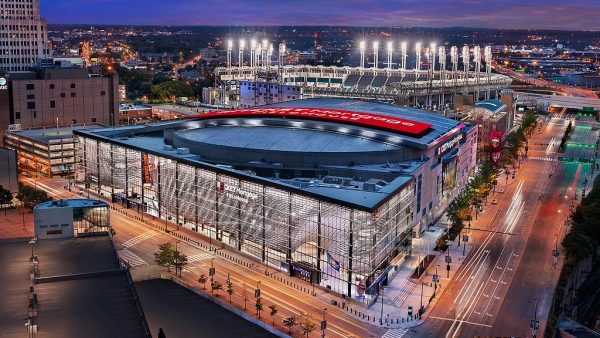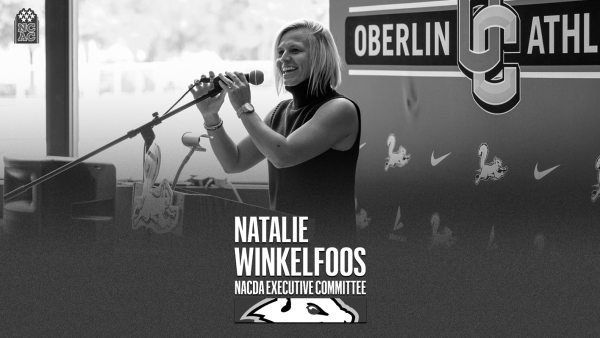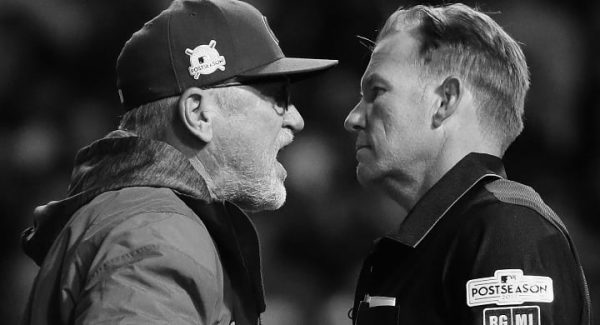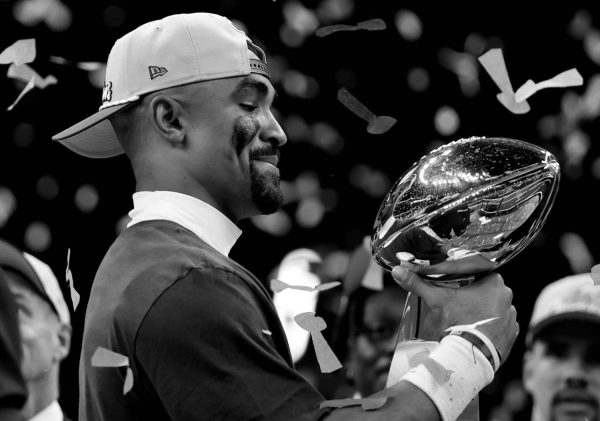Write-In Votes for Athletes Must Consider Qualifications
New York sports fans found a novel way of honoring their athletes off the field last month, as the New York Yankees’ Aaron Judge and Knick’s Kristaps Porzingis received write-in votes for mayor of New York City in November’s election. Judge, the Rookie of the Year who came in second place for American League MVP; and Porzingis, the Latvian-born phenom averaging 27 points a game this year, were not the first — and certainly won’t be the last — athletes to earn this sort of appreciation from fans. Instead, their write-ins indicate how athletes play multifaceted roles in fans’ lives beyond in the sports themselves.
Fresh off a Boston Red Sox world series win, World Series MVP David Ortiz came in third place for Boston’s 2013 mayorial race. Ortiz had been a clubhouse leader of the Red Sox in each of his 12 years with the team, and 2013 was
a year in which Boston relied on social and athletic figures heavily. In April, the city endured the Boston Marathon bombings. Before their next home game, the Dominican-born player took a few moments to discuss this pride in his professional home, saying “this is our f—king city” to a packed Fenway Park crowd. The vulgarity of Ortiz’s comments was ignored and his status of a Boston hero was solidified.
As professional athletes, players most likely do not have the experience in policy, law, or economics to be completely prepared to serve in office. However, athletes still possess qualities of high pressure leadership that fans connect to politics, in ways that could have almost had profound effects on U.S. history.
“Iron Mike” Ditka, former NFL player and — more notably — coach of the 1985–86 Super Bowl Champions, The Chicago Bears, was adored by his fans and peers. In 2004, he was approached by Republican leaders to run for the open senate seat in Illinois, but declined. Instead, Barack Obama ran, won, and later became President. If Ditka, who was seen as the GOP’s best candidate at the time, had run and won, who knows what politics today would look like.
The merging of sports and politics is not something that exists only in speculation, however. The most notable athletes to make the switch from sports to politics after their athletic careers finished would be Kevin Johnson and Bill Bradley. Johnson, a four-time All-NBA second team point guard who played from 1987–2000, decided to return to UC Berkeley to study political science after his retirement. He then became the first African-American mayor of Sacramento, his hometown, winning both in 2008 with a landslide election and then in his 2012 re-election.
While Johnson managed to launch education initiatives to benefit students in Sacramento, CA — as well as fight to keep the Sacramento Kings, the capital city’s NBA team, from moving to Anaheim, CA, or Seattle — Bradley was unquestionably the most successful athlete-turned-politician. Bradley, who declined all 75 of his basketball scholarships to attend Princeton University, then Oxford on a Rhodes Scholarship after his graduation, followed up a 10-year basketball career in the NBA by becoming a U.S. Senator for New Jersey from 1979 to 1997.
The merging of sports and politics can be both a over-idolization of stars and an example of sports’ brightest minds. How fans celebrate players that represent their cities in sports and choose who represents them politically are subject to debate. However, it is ridiculous to think a player’s athletic achievements will translate to political ability. The most successful athletes in office got there because of off-field and post-retirement actions, not because of how they represent their city in their sport.







